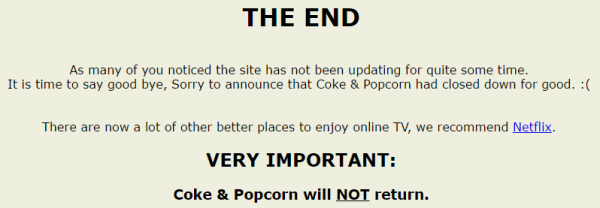 While some pirates will probably never be tempted away from the digital high seas, over the past decade millions have ditched or tapered down their habit with the help of Spotify.
While some pirates will probably never be tempted away from the digital high seas, over the past decade millions have ditched or tapered down their habit with the help of Spotify.
It’s no coincidence that from the very beginning more than a decade ago, the streaming service had more than a few things in common with the piracy scene.
Spotify CEO Daniel Ek originally worked with uTorrent creator Ludvig ‘Ludde’ Strigeus before the pair sold to BitTorrent Inc. and began work on Spotify. Later, the company told TF that pirates were their target.
“Spotify is a new way of enjoying music. We believe Spotify provides a viable alternative to music piracy,” the company said.
“We think the way forward is to create a service better than piracy, thereby converting users into a legal, sustainable alternative which also enriches the total music experience.”
The technology deployed by Spotify was also familiar. Like the majority of ‘pirate’ platforms at the time, Spotify operated a peer-to-peer (P2P) system which grew to become one of the largest on the Internet. It was shut down in 2011.
But in the clearest nod to pirates, Spotify was available for free, supported by ads if the user desired. This was the platform’s greatest asset as it sought to win over a generation that had grown accustomed to gorging on free MP3s. Interestingly, however, an early Pirate Bay figure has now revealed that Spotify also had a use for the free content floating around the Internet.
As one of the early members of Sweden’s infamous Piratbyrån (piracy bureau), Rasmus Fleischer was also one of key figures at The Pirate Bay. Over the years he’s been a writer, researcher, debater and musician, and in 2012 he finished his PhD thesis on “music’s political economy.”
As part of a five-person team, Fleischer is now writing a book about Spotify. Titled ‘Spotify Teardown – Inside the Black Box of Streaming Music’, the book aims to shine light on the history of the famous music service and also spills the beans on a few secrets.
In an interview with Sweden’s DI.se, Fleischer reveals that when Spotify was in early beta, the company used unlicensed music to kick-start the platform.
“Spotify’s beta version was originally a pirate service. It was distributing MP3 files that the employees happened to have on their hard drives,” he reveals.
Rumors that early versions of Spotify used ‘pirate’ MP3s have been floating around the Internet for years. People who had access to the service in the beginning later reported downloading tracks that contained ‘Scene’ labeling, tags, and formats, which are the tell-tale signs that content hadn’t been obtained officially.
Solid proof has been more difficult to come by but Fleischer says he knows for certain that Spotify was using music obtained not only from pirate sites, but the most famous pirate site of all.
According to the writer, a few years ago he was involved with a band that decided to distribute their music on The Pirate Bay instead of the usual outlets. Soon after, the album appeared on Spotify’s beta service.
“I thought that was funny. So I emailed Spotify and asked how they obtained it. They said that ‘now, during the test period, we will use music that we find’,” Fleischer recalls.
For a company that has attracting pirates built into its DNA, it’s perhaps fitting that it tempted them with the same bait found on pirate sites. Certainly, the company’s history of a pragmatic attitude towards piracy means that few will be shouting ‘hypocrites’ at the streaming platform now.
Indeed, according to Fleischer the successes and growth of Spotify are directly linked to the temporary downfall of The Pirate Bay following the raid on the site in 2006, and the lawsuits that followed.
“The entire Spotify beta period and its early launch history is in perfect sync with the Pirate Bay process,” Fleischer explains.
“They would not have had as much attention if they had not been able to surf that wave. The company’s early history coincides with the Pirate Party becoming a hot topic, and the trial of the Pirate Bay in the Stockholm District Court.”
In 2013, Fleischer told TF that The Pirate Bay had “helped catalyze so-called ‘new business models’,” and it now appears that Spotify is reaping the benefits and looks set to keep doing so into the future.
An in-depth interview with Rasmus Fleischer will be published here soon, including an interesting revelation detailing how TorrentFreak readers positively affected the launch of Spotify in the United States.
Spotify Teardown – Inside the Black Box of Streaming Music will be published early 2018.
Source: TF, for the latest info on copyright, file-sharing, torrent sites and ANONYMOUS VPN services.

 If you enjoy this episode, consider becoming a patron and getting involved with the show. Check out Steal This Show’s Patreon campaign: support us and get all kinds of fantastic benefits!
If you enjoy this episode, consider becoming a patron and getting involved with the show. Check out Steal This Show’s Patreon campaign: support us and get all kinds of fantastic benefits!



 Pirate sites come and go all the time. Often they disappear quietly, without an official word, but that’s not the case with the popular streaming site Coke and Popcorn.
Pirate sites come and go all the time. Often they disappear quietly, without an official word, but that’s not the case with the popular streaming site Coke and Popcorn. 
 More than five years have passed since
More than five years have passed since